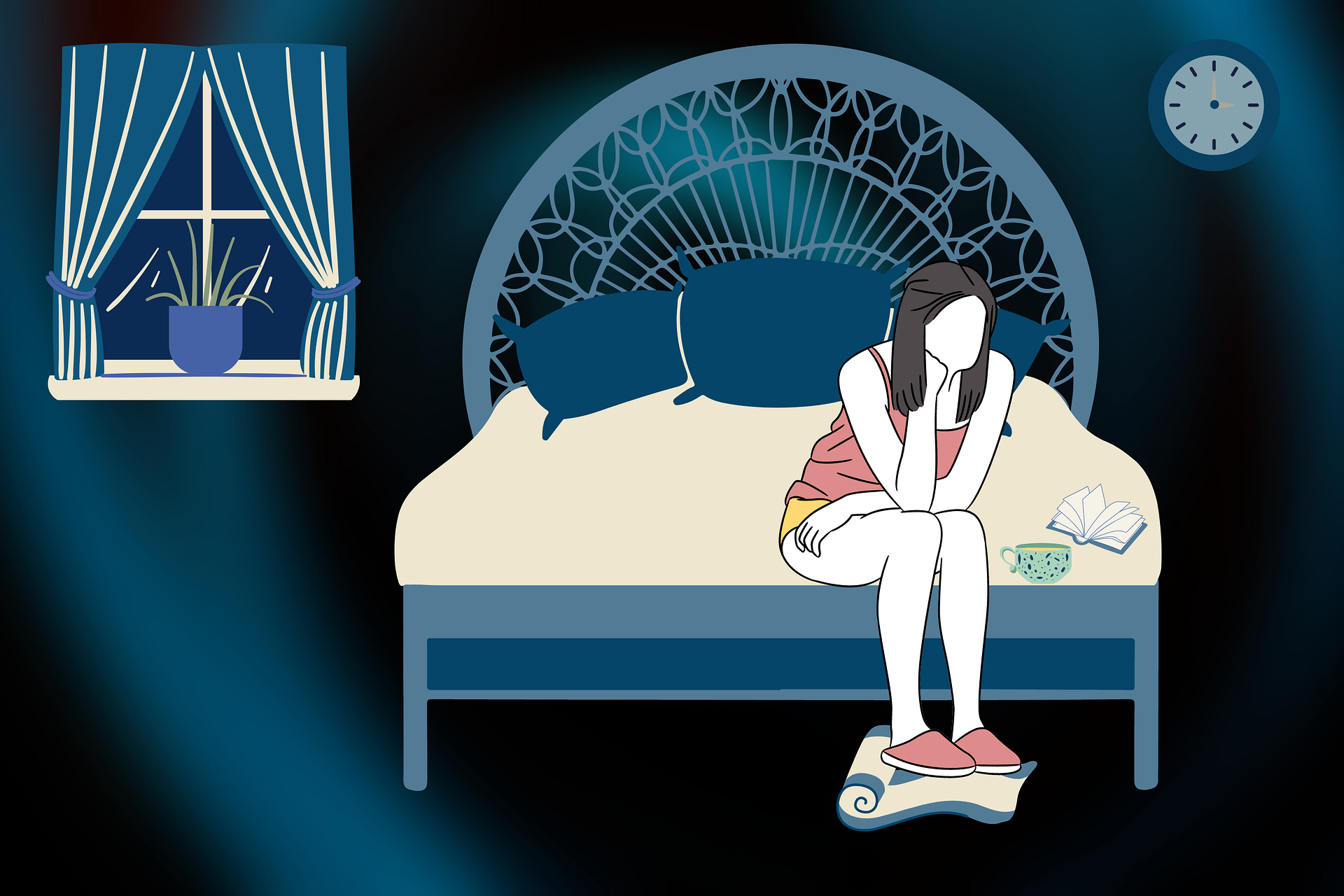You must have experienced restless nights as such—lights are off, phones shut down, and all the hustle and bustle of the world has retreated into silence. Yet your mind refuses to rest. It is as active as if you just had a double espresso. You toss and turn on the bed, but not a single position brings you comfort. You start to worry about messing up the important meeting tomorrow, keeping sleep even further away. Finally, your consciousness drifts away only when the darkness is broken by the first glow of light. The next morning, you are hit, unsurprisingly, by fatigue rather than refreshment.
Sleeping is a behaviour that at first glance seems disadvantageous in terms of evolution. During sleep, we are not conscious of the environment, immobile, and unable to respond to outer stimuli. In short, it renders animals vulnerable. To have been kept during the long course of evolution, sleep must be able to bring benefits in other aspects. Although researchers are far from reaching a consensus regarding the functions of sleep, several hypotheses have been proposed. Sufficient and high-quality sleep is critical for body growth and cerebral cortex development, memory consolidation, emotion adaptation, proper metabolism and immune activities to name a few. Conversely, lack of sleep correlates with a range of negative health outcomes including depression, hypertension, obesity—not to mention other adverse effects resulting from impaired daytime performance.
Unfortunately, a significant number of people in modern society are unable to enjoy the benefits of good sleeping. They are troubled by insomnia, a sleep disorder encompassing a wide range of symptoms relevant to dissatisfaction with sleep quantity and quality, including difficulties to falling asleep, staying asleep, or returning to sleep after waking up at night. We all sometimes experience acute insomnia for a few nights, but for some people, it’s chronic suffering over months and years. A five-year cohort study with more than three thousand participants showed that between 12 and 20% of the general population struggles with insomnia, with symptoms persisting over five years in more than half of the patients.
Sufficient and high-quality sleep is critical for body growth and cerebral cortex development, memory consolidation, emotion adaptation, proper metabolism and immune activities to name a few.
Medication is the top choice for many patients with insomnia as a fast and accessible way to send them into a sound sleep. A wide variety of pharmacological agents have been produced for this purpose, exploiting the inherent regulatory mechanisms of sleep-wake cycles and circadian rhythms in the human brain. The neural regulation of sleep and wakefulness is essentially a balance—the competition between the relative activities of wake-promoting neurons and sleep-promoting neurons determines one’s consciousness level. Commonly used drugs target different subsets of wake-promoting or sleep-promoting neurons. Benzodiazepines and z-drugs enhance signalling in the sleep-promoting neurons. Antihistamines generate a feeling of drowsiness by inhibiting the wake-promoting neurons. Some new agents, such as suvorexant, antagonise neurons that secrete orexin, which has a dual effect of activating sleeping neurons and inhibiting waking neurons. Melatonin, which regulates the circadian cycle, is also useful to induce sleepiness, especially for travellers frequently experiencing jet lag.
With so many drugs available, which one is the most beneficial for sleepless patients? Researchers at the University of Oxford, led by Professor Andrea Cipriani, recently conducted a meta-analysis of clinical data on hypnotic agents that have been developed. Based on 170 different clinical studies, the team compared the effectiveness, acceptability, side effects, and safety of 36 drugs used to treat both acute and long-term insomnia, in patients without other mental health problems.
The researchers reached several notable conclusions. In terms of efficacy, several common licensed agents, including benzodiazepine and two of Z-drugs (zolpidem and zopiclone), can fight off short-term insomnia. Nonetheless, they lose potency in terms of long-term insomnia, for which eszopiclone and lemborexant perform better. The former activates sleep-promoting neurons while the latter is an orexin neuron antagonist. In addition, melatonin and similar agents do not seem to improve insomnia among the general patient population. Whilst these drugs have been shown to be effective in certain areas, there are still some drawbacks. Furthermore, several drugs that demonstrate high efficacy are either poorly tolerated or lack a convincing safety profile. In fact, they can lead to dizziness, nausea, falling in older adults, and so on.
Via this meta-analysis, the researchers provided more references for clinicians and patients to choose between different hypnotic agents. In previous studies, mainly randomised control trials comparing drugs with placebo, there lacked direct comparison between different agents. The analysis, which summed up large quantities of available data, also reveals a shortcoming of the field. The researchers admitted that there are limitations to their analysis due to the lack of long-term studies regarding hypnotic drugs, which are more difficult to carry out. As insomnia can be a long-term issue, they call for more effort to be focussed on this direction.
Whilst these drugs have been shown to be effective in certain areas, there are still some drawbacks. Furthermore, several drugs that demonstrate high efficacy are either poorly tolerated or lack a convincing safety profile.
Though there is much left to explore in hypnotic medications, they are not the only remedy for insomnia. Many cases of insomnia develop because of stress during the day, traumatic experiences, or poor sleep habits (irregular schedule, uncomfortable bedroom, stimulating activities, etc.). These patients do not have hardware problems in their sleep-wake regulatory neurons. Therefore, directly targeting their behavioural or psychological issues by using cognitive behavioural therapy might be a more direct cure. Professor Cipriani also stated that hypnotic agents might not be used as the first line of treatment for insomnia, but as supplementary treatments alongside cognitive behavioural therapies.
As the name suggests, the cognitive part of the therapy guides patients to recognize the cause of their insomnia and helps them to eliminate negative thoughts and anxiety about the inability to sleep. The behavioural part facilitates them to establish healthy sleep habits. Therapists may use strategies such as stimulus control (conditioning the patient to associate sleeping behaviour with their bedroom), body relaxation techniques, sleep restriction and passive awakeness (instructing the patients to stay awake in bed to alleviate the pressure of having to fall asleep). Even for people without clinical symptoms of insomnia, it is helpful to maintain sleep hygiene by avoiding eating or exciting stimuli before sleeping, learning to relax muscles, and maintaining a regular schedule.
A good night’s sleep brings a satisfying end to one day and a refreshing start to another. For people troubled by sleeping, scientists are still in search of a cure for insomnia. The answer might lie in new drugs with higher specificity and stronger tolerability, in a better understanding of human psychology, or in a simple switch of daily habits.





